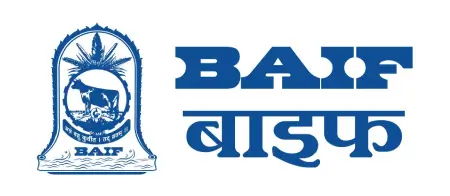BAIF CENTRAL RESEARCH STATION
Research and Development Facilities
Livestock Development
Exotic Bull Mother Farm and Bull Station: The Central Cattle Breeding Farm maintains cattle and buffaloes with 100 disease-free elite bull mothers of HF and Jersey breeds and males of Holstein Friesian, Jersey and their crosses, indigenous breeds of cattle such as Sahiwal, Gir, Tharparkar, Khillar, Hallikar Amritmahal, Gangatiri and Dangi and buffalo breeds such as Murrah, Surti, Jafrabadi, Banni, Pandharpuri and Bhadavari, adhering to biosecurity norms.
Semen Freezing Laboratories: The Semen Freezing Laboratories at Urulikanchan and Jind are engaged in the production of conventional frozen semen doses of 14 indigenous and 2 exotic breeds, crossbreds and 7 buffalo breeds, including sexed-sorted semen production at the world-class laboratory established at Urulikanchan in collaboration with Sexing Technologies, USA and funded by Bill and Melinda Gates Foundation. The Goat Semen Laboratory at Wagholi, Pune, produces frozen semen of 9 breeds.
An in-house sire directory showcases sires and bucks with pedigree parameters for the benefit of farmers.

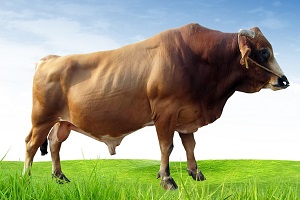


Embryo Transfer Laboratory: The Ova Pick Up (OPU) and In-vitro Fertilisation (IVF) Embryo Transfer Laboratory has been established under the Conservation and Multiplication of Superior Germplasm in Cattle especially indigenous dairy breeds under the National Mission on Bovine Productivity Project of the Government of India.
Livestock Genomics Research Laboratory: The Enhanced Genetics Project funded by Bill and Melinda Gates Foundation, strives to deliver adapted genotypes to the specific environment by understanding Genotype x Environment interaction and setting up a genomic selection platform for cattle and buffaloes by forming reference population. The activities cover performance recording and genotyping of bovine population in diverse agro-climatic zones through a customized and robust data collection system.
Molecular Genetics Laboratory: The laboratory is engaged in screening and karyotyping of breeding bulls for genetic disorders and animal disease surveillance.
Field Performance Recording: The programme, implemented under the Rashtriya Gokul Mission and supported by the Maharashtra Livestock Development Board, covers Deoni, Gaolao and Khillar indigenous breeds of cattle to enhance the productivity and identify elite true-to-breed animals for production of high genetic merit bulls.
Breed Characterisation and Breed Registration: Breed characterisation and registration of Kathani cattle and Balangir goat are being undertaken in Vidarbha, Maharashtra and Balangir, Odisha.
Progeny Testing: Under the ICAR Coordinated Network Project, 16 Frieswal bull batches comprising of 311 bulls were introduced for test insemination in Kopargaon, Ahmadnagar, Maharashtra. Progenies from 12 bull batches have completed their performance and progenies from 2 batches are under milk recording.
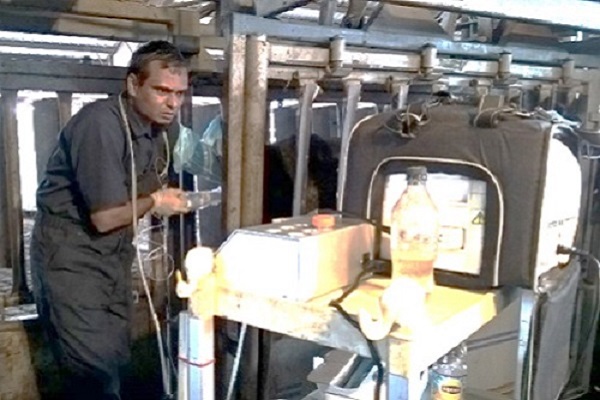

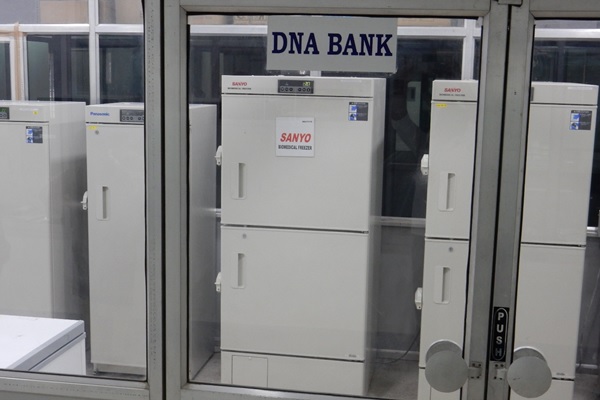
Livestock diversity: In-situ conservation of Dangi, Lalkandhari and Gaulao cattle breeds through breeding services and Ex-situ conservation of semen doses produced from elite bulls.
Sanvadini: This outbound farmer-centric call centre establishes contact with dairy farmers in 8 states to address their concerns in dairy cattle management.
Data Management and Computation Unit: This unit is engaged in multi-location genome data management with seamless interfacing and data repository. This facility is also being extended to other organisations.


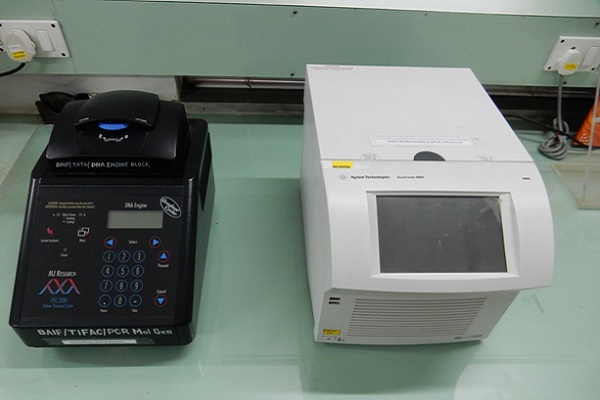
Forage Research Programme
Training
Need-based refresher training courses are conducted on animal breeding, embryo transfer technology, semen production, artificial insemination (AI) in cattle, buffaloes and goats, feeding and management, fodder production, biofertilizer, watershed development and empowerment of women.
Plants and Crops
Nourishing the Nourisher: Since the quality of fodder is deeply interlinked with cattle productivity and health, a lot of emphasis has been placed on forage evelopment. Research in the use of non-conventional feed and fodder resources, production of complete feed and total mixed ration (TMR) and mineral mapping for the production of area specific mineral mixtures are some of the initiatives.
Multi-cut forage varieties of Bajra (BAIF Bajra-1) and Hybrid Napier (BAIF Napier-10) have been developed by scientists from BAIF and released at the national level by ICAR.
Further research and evaluation is underway on other potential forage varieties.
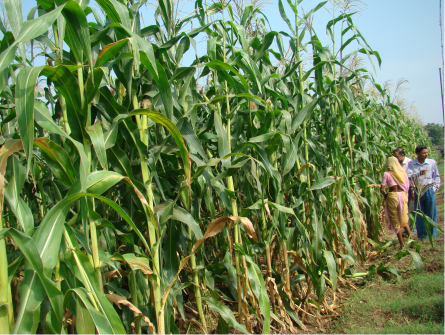
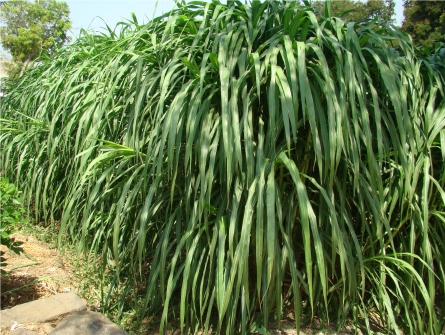
Coordinated research on fodder crops
The Subabul Tree: To ensure the availability of perennial nutritious fodder, BAIF introduced the Subabul – a protein rich legume fodder tree to the communities. The unique aspect of this initiative was that a poor farmer family was able to meet their fodder, fuel and timber requirements by harvesting various parts of this versatile tree. Simultaneously, the objective of soil enrichment was also achieved.
Interdisciplinary Research
Apart from technical domain area research carried out at research stations, the BAIF team of researchers is involved in various field-based and community-based inter-disciplinary research in real-world contexts. This enables easier transfer of research outputs to field programmes as well as involves communities through participatory research.
Spineless Cactus: It is a potential source of green fodder for arid and semi-arid regions of India. Cactus also known as prickly pear or cactus pear, is one of the most suitable species for arid and semi-arid climate. It is tolerant to drought, high temperature and frost, adapted to hot arid environment because of xerophytic characters, multiplication through vegetative means, having multipurpose uses as fruit, vegetable and nutritive fodder, industrial importance for value added products and good species to withstand emerging conditions of Climate Change.
After standardization of propagation, production and feeding technology, BAIF has introduced spineless cactus in Maharashtra, Rajasthan, Gujarat, Andhra Pradesh and Karnataka through establishment of more than 800 field demonstration trials supported by NABARD and ECLIPSE and other donor agencies. The farmers are now utilising cactus as a source of green fodder for cattle, buffalo, goat and sheep. These plantations are also functioning as a decentralized cactus nursery and meeting the demand of the cactus plantation in that region. BAIF also participated in a global survey on ‘Cactus Pear characterization and economic valuation in India’ in collaboration with International Center for Agricultural Research in Dry Area.

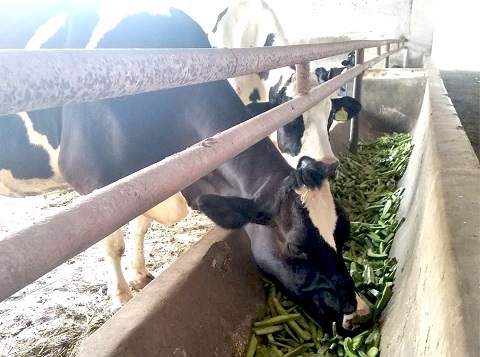
Research Coordination Committee
Dr. Ashok Pande, Chairperson
Members: Dr. Sajal Roy, Dr. Jayant Khadse, Mr. Pramodkumar Takawale
Associate Members: Dr. Sachin Joshi, Dr. Vitthal Kauthale, Mr. Raosaheb Kote
Member Secretary: Mr. Ganesh Bedare
